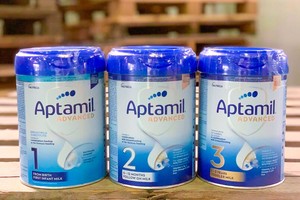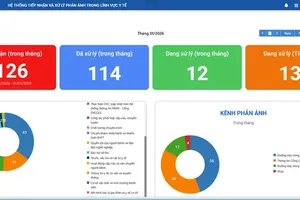Furthermore, data from the Hanoi Department of Natural Resources and Environment's environmental monitoring system also indicates poor to very poor air quality in many areas across the capital for several consecutive days. Additionally, the Northern region has been experiencing prolonged high humidity, ranging between 80 percent and 90 percent. In the mornings, dense fog blankets numerous high-rise buildings and streets when viewed from afar.
The elevated levels of fine dust and prolonged humidity are having a considerable impact on people's lives and health. Reports from several hospitals in the Northern region show a significant increase in patients suffering from respiratory, musculoskeletal, cardiovascular, and dermatological conditions.
At the National Geriatric Hospital, hospital admissions have surged by 150 percent, primarily due to cardiovascular, respiratory, and neurological ailments, with respiratory infections comprising approximately 70 percent of cases.
The Hai Duong Tuberculosis and Lung Diseases Hospital is currently treating over 400 patients, many of whom require oxygen therapy and mechanical ventilation due to pneumonia, chronic obstructive pulmonary disease (COPD), bronchial asthma, and influenza A—all attributed to the effects of air pollution and humid weather.
At the National Children's Hospital, there has been an increase in hospitalized children with respiratory-related illnesses.
Particularly at the National Hospital of Dermatology and Venereology, the number of admissions due to increased humidity has significantly risen. Among these cases, many patients delayed seeking medical attention, leading to unpredictable complications, primarily related to viral infections such as shingles, herpes, and folliculitis.
























